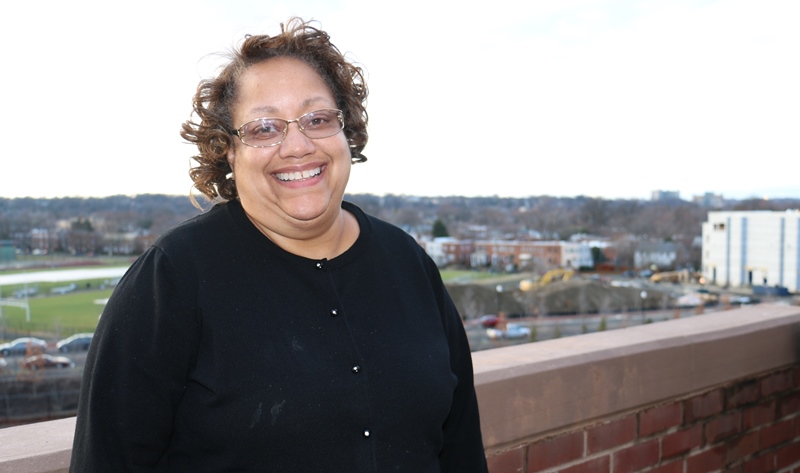This is the second post in a series on cultural competency by Chery Robinson, the cultural competency coordinator in the Department of Student Services, Alternative Programs and Equity. Cheryl, who joined ACPS in September, began her career as a special education teacher working in urban and suburban schools more than 20 years ago. She has designed and implemented learning opportunities for school boards, superintendents, professional organizations and central office staff. She has also created family engagement activities and opportunities that address the unique needs of student groups.
Cheryl will be working with staff to provide professional learning opportunities focused on equity as part of our commitment in the ACPS 2020 Strategic Plan to ensure academic excellence and educational equity so that every student will be academically successful and prepared for life, work, and college.
Cultural competency is a process that begins with an awareness of one’s own cultural identity and views about difference. This awareness informs practices, affecting the ways staff interacts with students, families and colleagues, particularly those representing different cultures.
One of the ways to address differences in our schools is through educational equity, which provides each individual with what he or she needs in order to achieve success based on agreed upon standards. But, it’s important to distinguish between educational quality and equitable practices, because they are not the same. Although treating people equally is a societal goal in many circumstances, treating students equally in educational settings often contributes to gaps in learning outcomes.
It is through cultural competence that we can achieve educational equity, by building relationships that support the learning process and identifying strategies that address each student’s unique learning needs so that the student develops academically, socially and emotionally.
So, how do we create equitable learning environments?
It begins with professional learning that helps educators recognize how their behaviors affect their students. Those who demonstrate culturally responsive skills, abilities and mindsets:
- Assess the personal experiences that shape who they are (background, knowledge, skills, beliefs, values, interests, family role) and how they interact with students
- Are able to adopt different ways of communicating and interacting with people of different cultural backgrounds and customs and with different traditions and values
- Address multiple perspectives and factors that can affect interactions across cultures, which may include historical cultural experiences and relationships between cultures in a local community
- Design educational services based on an understanding of students’ cultures
- Create and institutionalize an organizational culture that meets the needs of any student group
Educators who demonstrate these competencies experience enhanced interactions with their students, are more effective teachers and are better able to meet the educational needs of our diverse student population. For more information on why educational equity matters, visit the National Education Association.
If you are interested in joining the advisory group that will guide the equity work in ACPS, or in becoming an equity trainer, contact Cheryl R. Robinson at cheryl.robinson@acps.k12.va.us.

